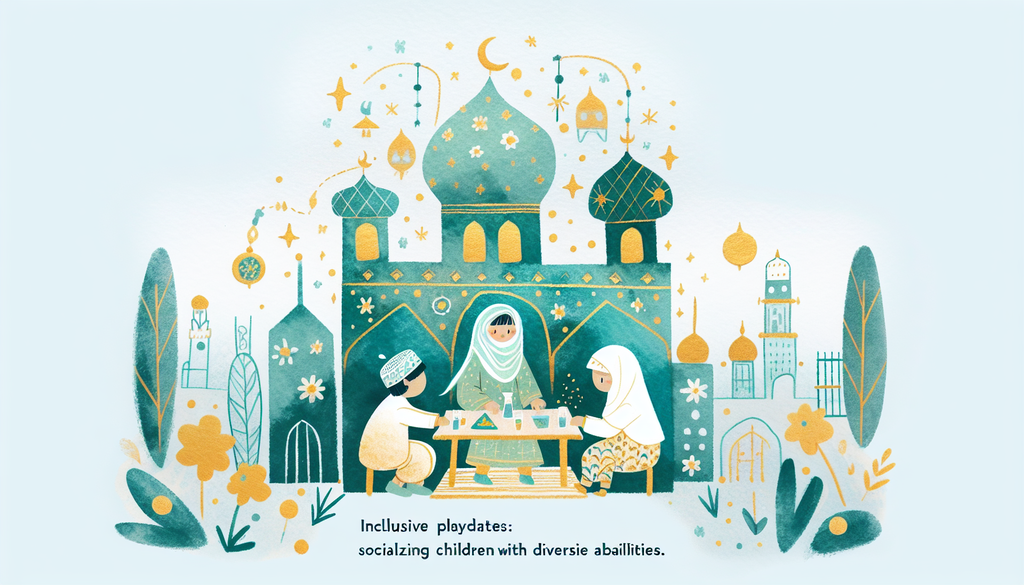Inclusive Playdates: Socializing Children with Diverse Abilities

As parents, caregivers, and educators, we play a critical role in helping children foster meaningful social relationships. For children with special needs or those identified as gifted and talented, navigating social interactions can sometimes pose unique challenges. Therefore, inclusive playdates - social meet-ups that honor and celebrate every child’s abilities - can be instrumental in promoting social-emotional development, fostering empathy, and building an appreciation for diversity.
Planning Considerably
Planning inclusive playdates takes a bit more thought, but the rewards are immeasurable.
-
Understand children’s unique needs: Before planning an inclusive playdate, make sure you understand the specific needs, abilities, and interests of each child. This way, you can ensure the environment is inviting and accessible. For insights on understanding the special needs or gifted characteristics of your child, revisit our post on Balancing Challenge and Support for Gifted Learners at School or Supporting your Highly Sensitive Child.
-
Prepare all children involved: Before the playdate, spend time educating all participating children about diversity and individual differences. Use age-appropriate language and examples they can relate to. Check the guide Celebrating Holidays with Diverse Abilities to promote understanding and acceptance.
-
Create a safe and comfortable environment: Ensure your play space promotes inclusivity. Our post on Inclusive Recreation: Designing Play Spaces for All Abilities can be a useful resource.
How Communication Can Help
Effective communication can pave a smooth road towards successful inclusive playdates.
-
Use “Augmentative and Alternative Communication” (AAC): Using AAC, we can ensure effective communication between children of varying abilities. To know more about AAC, please read The World of Augmentative and Alternative Communication.
-
Pre-teach pertinent vocabulary to all children: Teaching all children key words or phrases can ensure better communication. For understanding how you can employ this strategy through games, check Speech Therapy Games and Activities at Home.
-
Encourage children to use visual cues: This can range from facial expressions to hand signals. This is covered in detail in our post Educating Yourself as a Parent.
Activities that Foster Inclusivity
Inclusive play, can help children better understand and appreciate their peers’ unique abilities.
-
Creative art projects: Children with different abilities can work on art projects tailored to their interests and skills. Read Creating Artistic Spaces for Gifted Young Artists for ideas on creating inclusive art projects.
-
Outdoor exploration: Engaging children in outdoor activities where they can learn together could be a great way to include all children. For ideas, visit Exploring Nature’s Classroom: Outdoor Education for Special Needs.
-
Interactive story time: Regardless of abilities, all children can enjoy a captivating story. For tips on making reading more interactive and inclusive, visit Study Techniques for Visually Impaired Students.
Remember, the heart of an inclusive playdate is not the activity, but the acceptance of each child for who they are and the celebration of their unique strengths and abilities. More information on inclusive activities can be found in Inclusive Recreation: Designing Play Spaces for All Abilities.
Inclusive playdates offer a tangible way to bring the abstract concept of inclusion to life for children. They provide an opportunity to model and witness empathy, collaboration, and mutual respect between children of diverse abilities, laying the foundation for a more accepting and inclusive society.
Now, it’s time to start planning! Remember to involve children in the planning process as well. Not only can this make them more invested in the playdate, but it can also provide you with insights into how they perceive and understand the concept of inclusivity.
Happy planning!